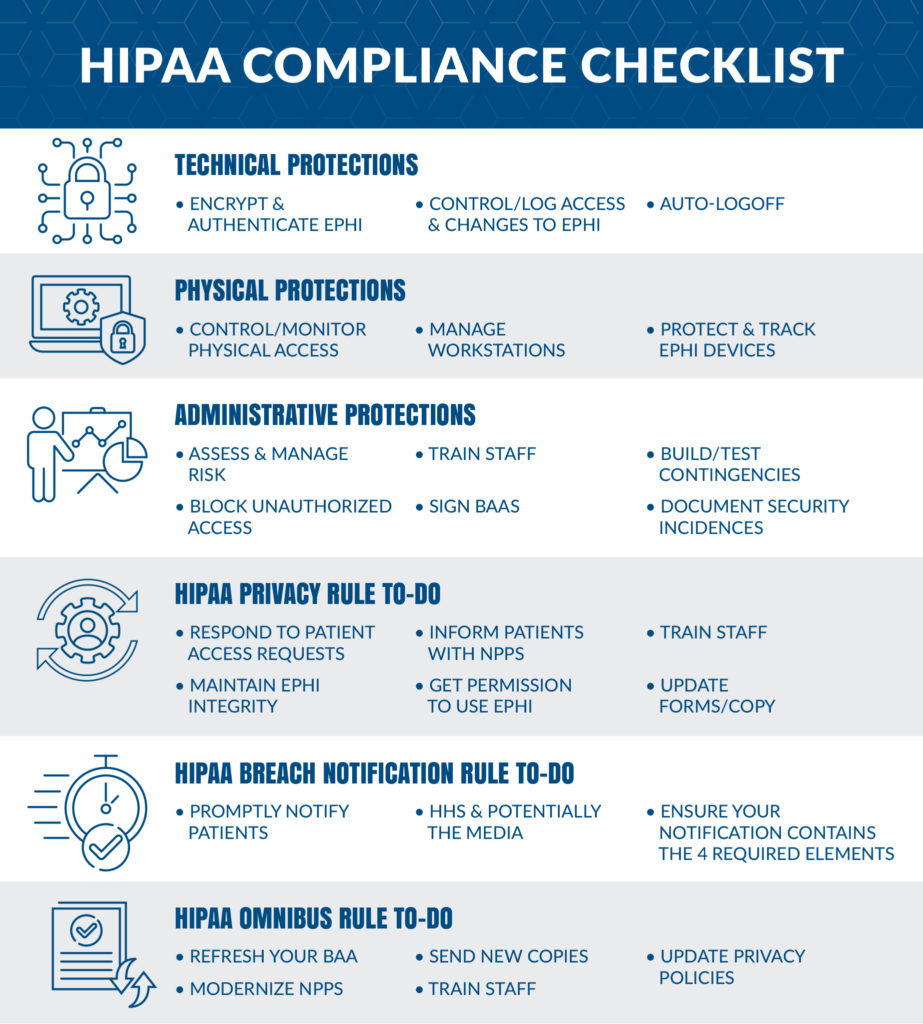HEALTH CARE
How is Touch World Inc HIPAA compliant?
- We providing HIPAA Awareness Training to all employees of the organization that have access to PHI
- Implementing formal documents and controls for the organization to protect and safeguard PHI
- Training of a compliance officer taking the responsibility for HIPAA
- Following HIPAA security rules referring to the Security Standards for the Protection of Electronic Protected Health Information
- Constantly updating BAA – Business Associate Agreements as needed

THE HIPAA PRIVACY AND HIPAA SECURITY RULES
According to the HHS, the HIPAA privacy rule or Standards for Privacy of Individually Identifiable Health Information, establishes national standards for the protection of certain health information. Additionally, the security rule establishes a national set of security standards for protecting specific health information that is held or transferred in electronic form.
The Security Rule operationalizes the Privacy Rule’s protections by addressing the technical and nontechnical safeguards that covered entities must put in place to secure individuals’ electronic data.
PHYSICAL AND TECHNICAL SAFEGUARDS, POLICIES, AND HIPAA COMPLIANCE
The HHS requires physical and for organizations hosting sensitive patient data. These physical safeguards include…
- Limited facility access and control with authorized access in place
- Policies about use and access to workstations and electronic media
- Restrictions for transferring, removing, disposing, and re-using electronic media and ePHI
Ask Us
Along the same lines, the technical safeguards of HIPAA require access control allowing only for authorized personnel to access ePHI. Access control includes…
- Using unique user IDS, emergency access procedures, automatic log off, and encryption and decryption
- Audit reports or tracking logs that record activity on hardware and software
Other technical policies for HIPAA compliance need to cover integrity controls, or measures put in place to confirm that ePHI is not altered or destroyed. IT disaster recovery and offsite backup are key components that ensure that electronic media errors and failures are quickly remedied so that patient health information is recovered accurately and intact.
DATA PROTECTION FOR HEALTHCARE ORGANIZATIONS AND MEETING HIPAA COMPLIANCE
The need for data security has grown with the increase in the use and sharing of electronic patient data. Today, high-quality care requires healthcare organizations to meet this accelerated demand for data while complying with HIPAA rules and protecting PHI. Having a data protection strategy in place allows healthcare organizations to:
- Ensure the security and availability of PHI to maintain the trust of practitioners and patients
- Meet HIPAA and HITECH regulations for access, audit, integrity controls, data transmissolutionssion, and device security
- Maintain greater visibility and control of sensitive data throughout the organization
The best data protection solutions recognize and protect patient data in all forms, including structured and unstructured emails, documents, and scans, while allowing healthcare providers to share data securely to ensure the best possible patient care. Patients entrust their data to healthcare organizations, and it is the duty of these organizations to take care of their protected health information.
